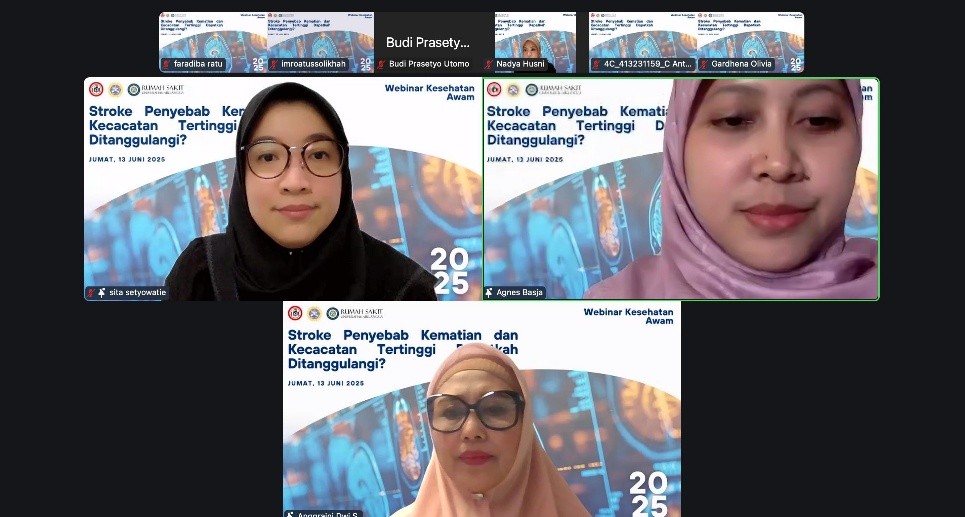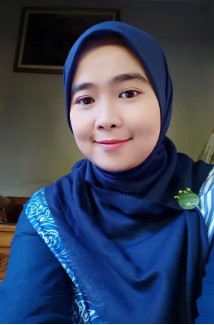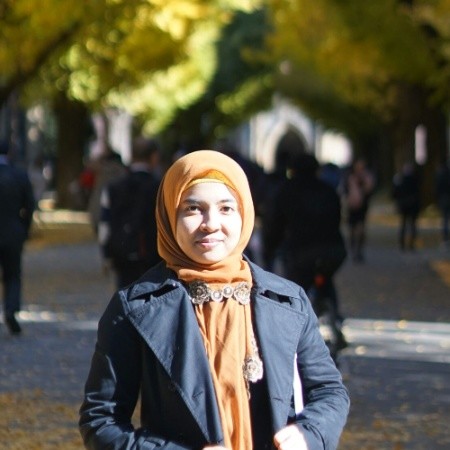EMPOWERING COMMUNITIES IN STROKE AWARENESS AND PREVENTION THROUGH A PUBLIC HEALTH EDUCATION WEBINAR INITIATIVE

Downloads
Introduction: Stroke remains a major public health issue in Indonesia, with increasing prevalence and significant impacts on morbidity and mortality. This health education intervention, implemented through an interactive public health education webinar on stroke awareness and prevention, aimed to empower the community by improving their knowledge and awareness of stroke symptoms, risk factors, and prevention strategies through an interactive online health education webinar.
Methods: This activity was conducted as a public webinar on June 13, 2025 via Zoom. A total of 98 participants who completed both the pre-test and post-test included in the analysis. The participants consisted of community members, health caders, and university students from various regions in Indonesia. The educational materials included multimedia content such as short videos focused on stroke prevention, health promotion, and rehabilitation with sessions led by specialist in radiology and neurology. Quantitative data were analyzed using descriptive statistics to summarize demographic and knowledge-level distributions, and a paired sample t-test to examine differences in mean knowledge scores between pre-test and post-test.
Results: A total of 98 participants, the majority female (74.49%) and aged 19–29 years (60.30%), completed both assessments and were included in the analysis. Mean knowledge scores increased from 84.15 ± 6.43 (pre-test) to 95.16 ± 4.03 (post-test), with a paired t-test showing a significant improvement (t(97) = –25.211, p < 0.001). Before the webinar, 14.29% had poor knowledge and 74.49% had good knowledge; post-webinar, poor knowledge dropped to 2.04% while good knowledge rose to 88.78%.
Conclusion: Digital educational platforms can serve as scalable and sustainable models for community health promotion, particularly in regions with limited access to in-person education. Future initiatives are encouraged to include follow-up community engagement and ongoing digital outreach to maintain knowledge retention and promote long-term behavioral change.

This work is licensed under a Creative Commons Attribution 4.0 International License.
Authors who publish with Jurnal Pengabdian Masyarakat dalam Kesehatan agree to the following terms:
The journal allows the author to hold the copyright of the article without restrictions.
The journal allows the author(s) to retain publishing rights without restrictions
The legal formal aspect of journal publication accessibility refers to Creative Commons Attribution (CC BY).
Authors retain copyright and grant Jurnal Pengabdian Masyarakat dalam Kesehatan the right of first publication with the work simultaneously licensed under a Creative Commons Attribution 4.0 International License that allows others to remix, adapt and build upon the work with an acknowledgment of the work's authorship and of the initial publication in Jurnal Pengabdian Masyarakat dalam Kesehatan.
- Authors are permitted to copy and redistribute the journal's published version of the work (e.g., post it to an institutional repository or publish it in a book), with an acknowledgment of its initial publication in Jurnal Pengabdian Masyarakat dalam Kesehatan.
Jurnal Pengabdian Masyarakat dalam Kesehatan requires a formal written declaration and transfer of copyright from the author(s) for each article published. We, therefore, ask you to complete and return this form, retaining a copy for your own records. Your cooperation is essential and appreciated. Any delay will result in a delay in publication.

JPMK by Unair is licensed under a Creative Commons Attribution 4.0 International License.










